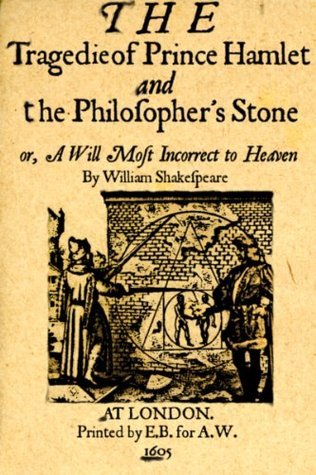What do you think?
Rate this book


69 pages, Kindle Edition
First published October 31, 2011
[Aside] As with a fishmonger upon the river Elbe, must now I haggle with a ghost?Filled with (loving) jabs at Shakespeare's play,
This creature once was kin.
Thou shalt not be avenged, save that thou swear:
an I slay thine killer, so wilt thou vouchsafe to me the means
by which I might slay death.
He who killed thee wilt join thee in the Pit,
and then that's it. No further swelling of hell's ranks will I permit.
Claudius must not anticipate me, for a scheme anticipated fails,Weiner's parody is concise, playful, wonderfully clever, and, more importantly, hilarious, throughout.
as a dumb-show thoughtlessly performed before a play
spoils the surprise and impact of the scene.